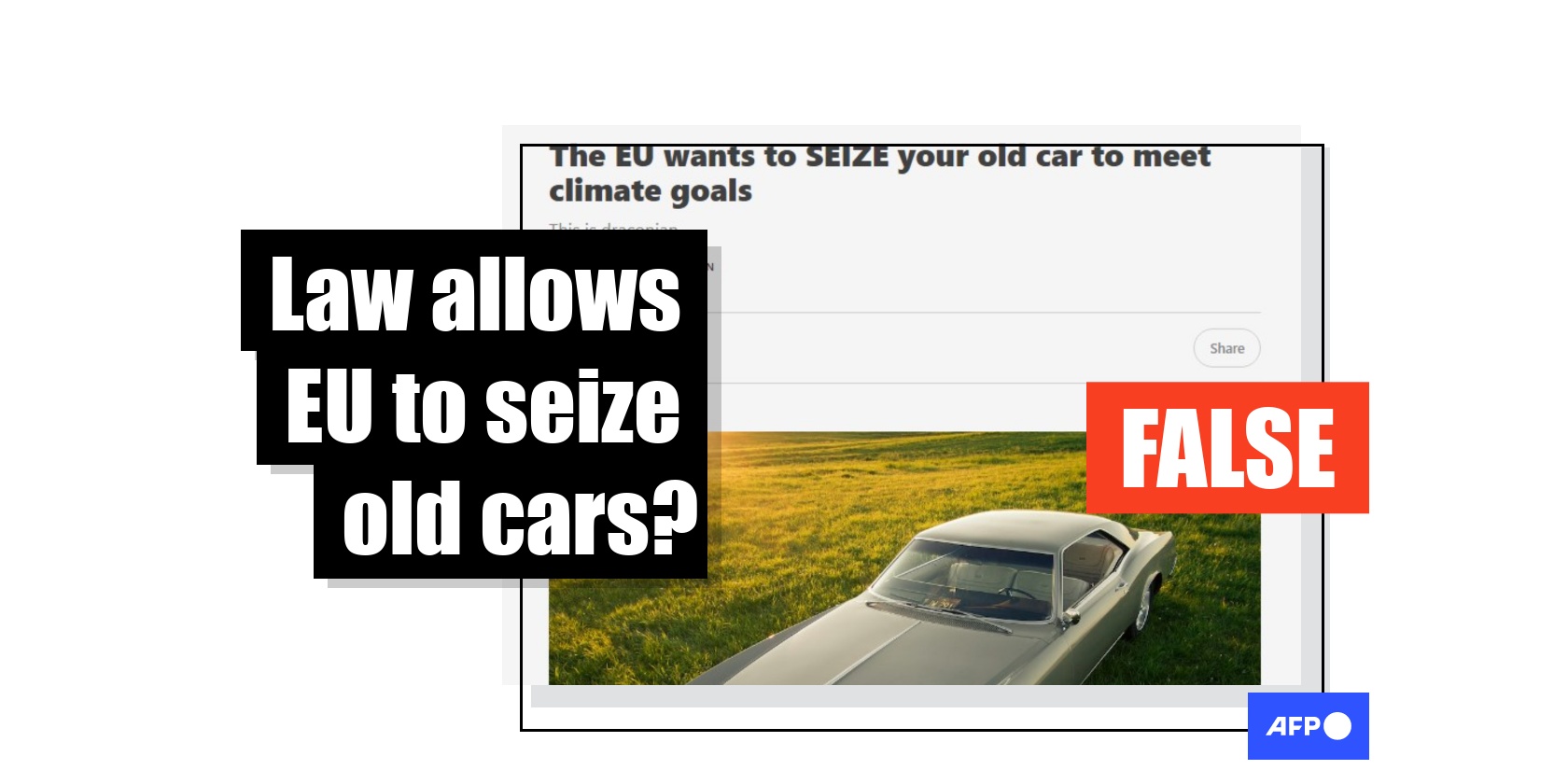
Posts misrepresent potential updates to EU vehicle recycling regulations
- This article is more than two years old.
- Published on December 7, 2023 at 23:08
- 5 min read
- By Chloé RABS, AFP France, AFP Canada
- Translation and adaptation Marisha GOLDHAMER
"The EU wants to SEIZE your old car to meet climate goals," claims Swedish commentator Peter Imanuelsen, also known as Peter Sweden, in a November 27, 2023 Substack post.
He made similar claims in a post on X, formerly known as Twitter, that received tens of thousands of interactions.
The Gateway Pundit, a conservative American website that AFP has repeatedly fact-checked for spreading misinformation, republished the Substack piece, gaining further traction on Facebook. Silvano Trotta, an influencer whose statements AFP has also previously debunked, amplified the same claim in French on X and Telegram.
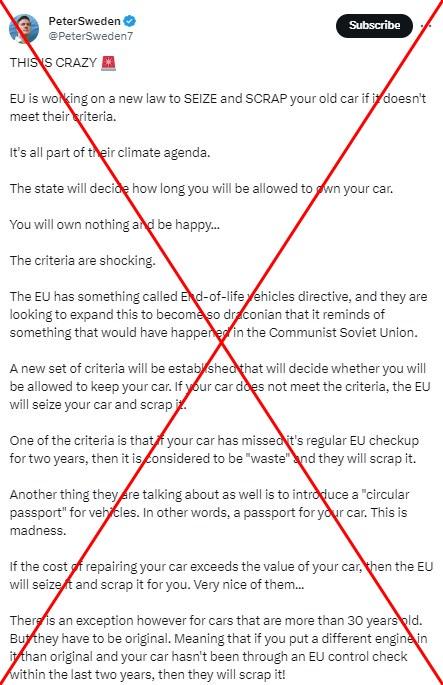
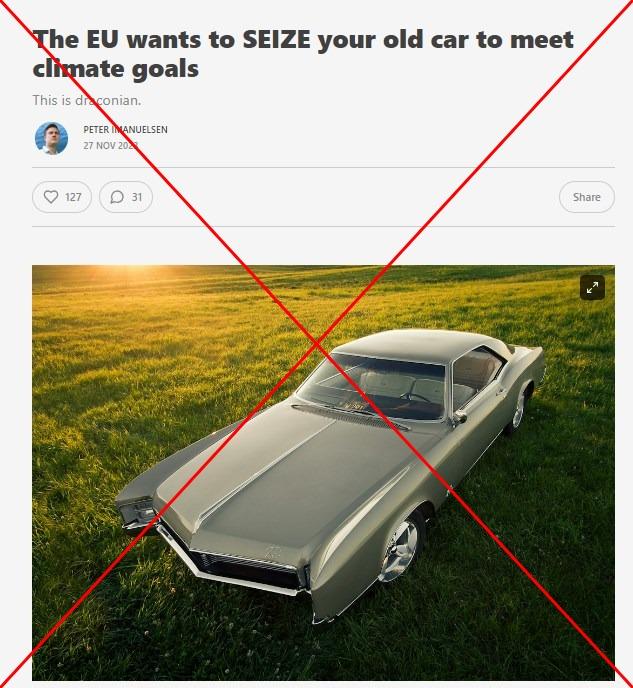
The posts follow a July 2023 European Commission proposal that seeks to promote more sustainability in the automotive industry (archived here).
The regulation would replace existing directives "on end-of-life vehicles and on reusability, recyclability and recoverability" of cars and car parts (archived here and here). Commission said it wants to update these rules -- which have been in place since 2000 and 2005, respectively -- to ensure the proper handling of some six million vehicles taken out of service in Europe each year.
The proposed changes do not give the European Union the power to take vehicles away from citizens.
"Each owner remains the decision-maker about what he does with his vehicle," Adalbert Jahnz, a Commission spokesman, told AFP on November 29.
Circular economy
The potential regulatory changes seek to create a more circular economic plan for the automotive industry, including by recovering more raw materials from cars.
The objective is to "better regulate the way in which we dispose of vehicles when they are out of service in order to improve their collection, treatment and recycling," Jahnz said.
Emma Babin, a French environment and energy lawyer, said the regulation is not primarily aimed at vehicle owners. Rather, the rules would "impose obligations on manufacturers, on the processing centers for these vehicles and on EU member states."
Among other things, the proposal (archived here) would require:
- Vehicles to be constructed so they are "reusable or recyclable to a minimum of 85 percent by mass" (Article 4).
- Authorized treatment facilities to "document the depollution of end-of-life vehicles," including the removal of fluids, liquids, batteries and other materials (Article 29).
- Member States to "adopt incentives to promote the reuse, remanufacturing and refurbishment of parts and components" (Article 33).
The only obligations placed on the vehicle owner are listed in Article 26.
A driver would be required to take their vehicle to "an authorized treatment facility when it reaches the end-of-life stage and to present the subsequent certificate of destruction for the vehicle's deregistration."

EU not forcibly scrapping cars
Imanuelsen claims: "If your car has missed it's (sic) regular EU checkup for two years, then it is considered to be 'waste' and they will scrap it."
But Jahnz of the European Commission said: "These statements are completely false and are not based on any element of the proposed regulation."
What the directive does is define criteria for declaring a vehicle at the end of its life. They include when a car has been "completely burnt" or "submerged in water to a level above the dashboard."
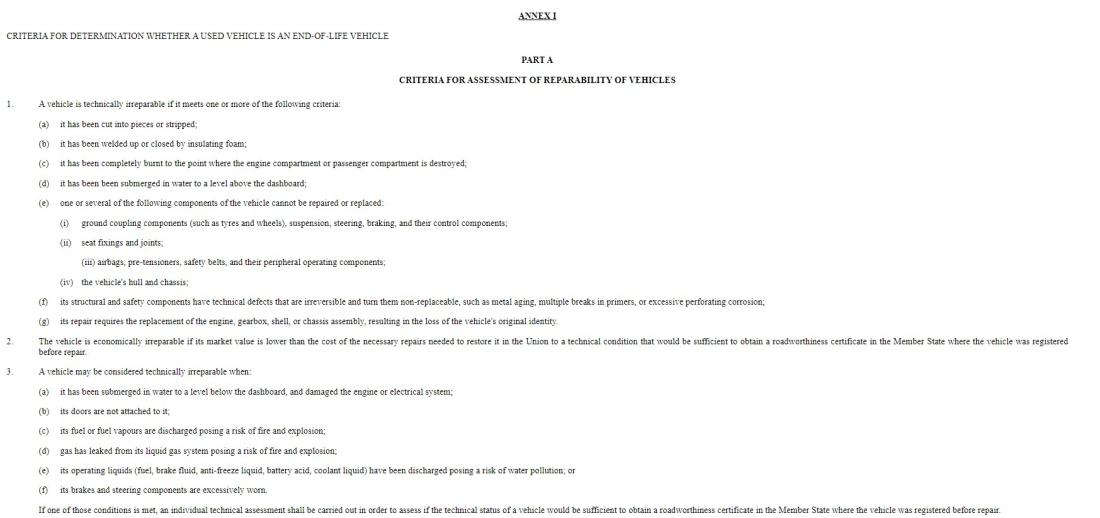

Passports for cars?
Imanuelsen also claims the EU is looking to introduce "a passport for your car."
That is misleading, as the regulations would not create a document restricting where a car can travel.
"The aim is to ensure that the raw materials of the vehicle circulate -- that they are reused or recycled better," Jahnz said.
Detailed in Article 13 of the EU proposal, the passport would be "a digital tool used to improve the provision of information on the safe removal and replacement of vehicle parts."
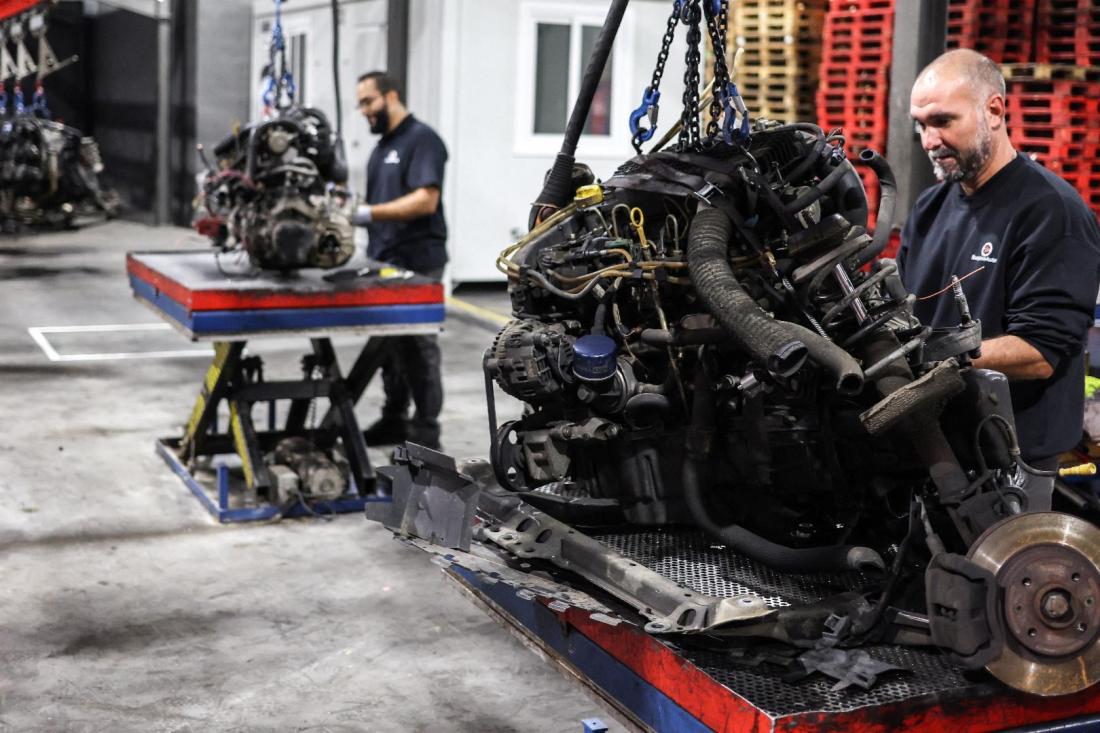
The provision is also aimed at ensuring vehicles no longer considered roadworthy are not illegally exported as used cars, skirting waste permit requirements.
In 2017, 3.8 million end-of-life vehicles "disappeared from the legal market," according to a report from the European Commission (archived here).
What happens to the missing cars is not easy to determine, but a grey market of illegal scrappers operates in Europe. That can lead to environmental damage -- including the release of hazardous liquids.
Still under review
As of December 7, the new end-of-life vehicle regulations were only a proposal. The Parliament and Council will each debate the changes and possible amendments before adopting the text.
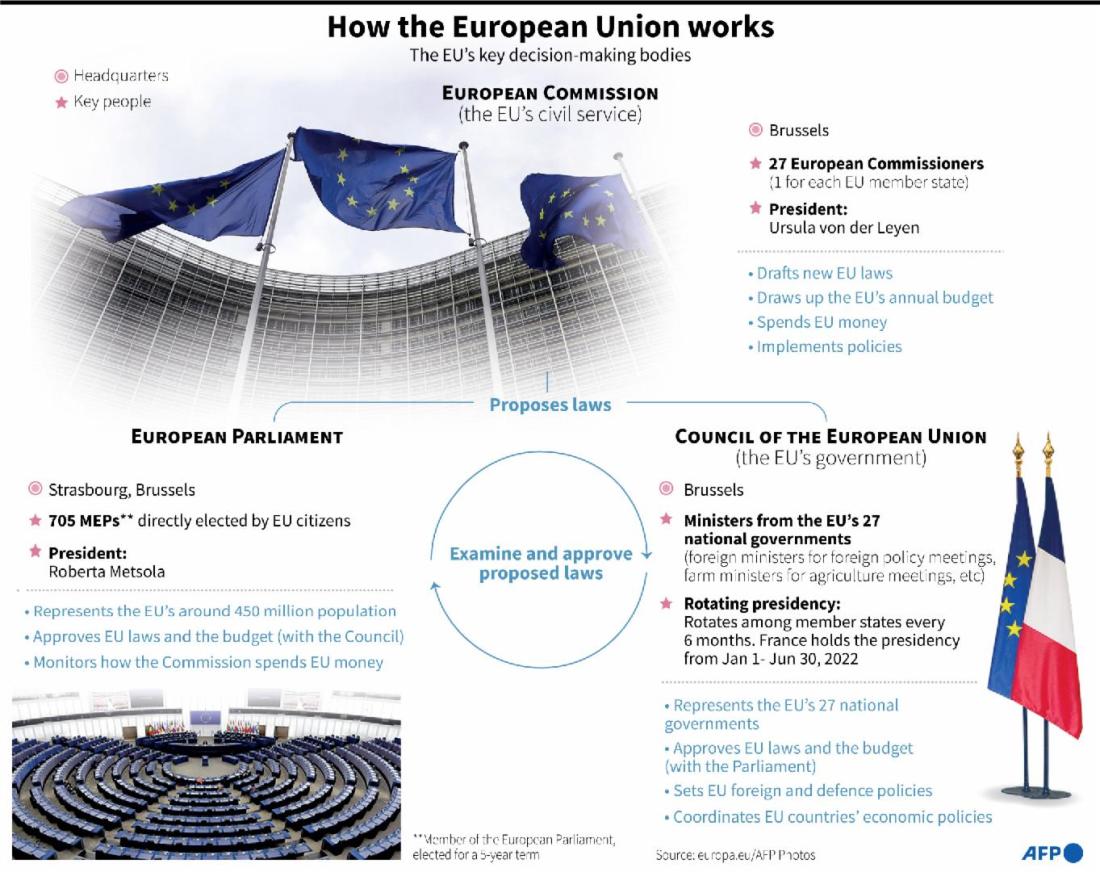
In Parliament, a majority of voters must adopt the text, while in the Council, it faces a qualified majority vote.
Under that system, 55 percent of member states -- corresponding to 15 of 27 -- must vote in favor. The member states supporting the proposal must also represent at least 65 percent of the EU population, according to the website Toute l'Europe (archived here).
The negotiation process can take several months or even years before regulation is adopted.
AFP has debunked other misleading claims about the European Union here.
Copyright © AFP 2017-2026. Any commercial use of this content requires a subscription. Click here to find out more.
Is there content that you would like AFP to fact-check? Get in touch.
Contact us
